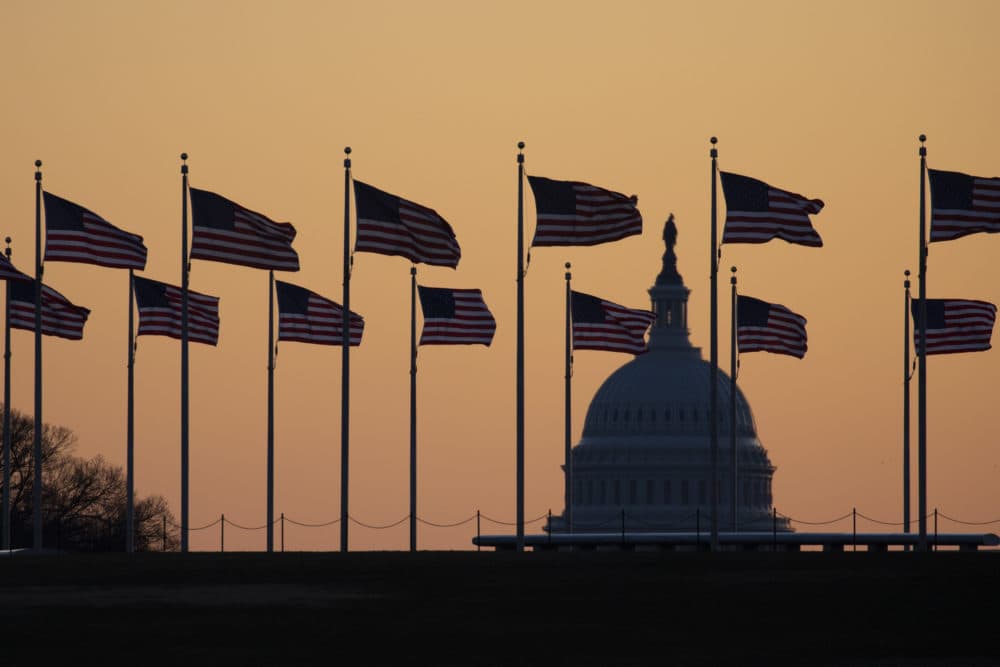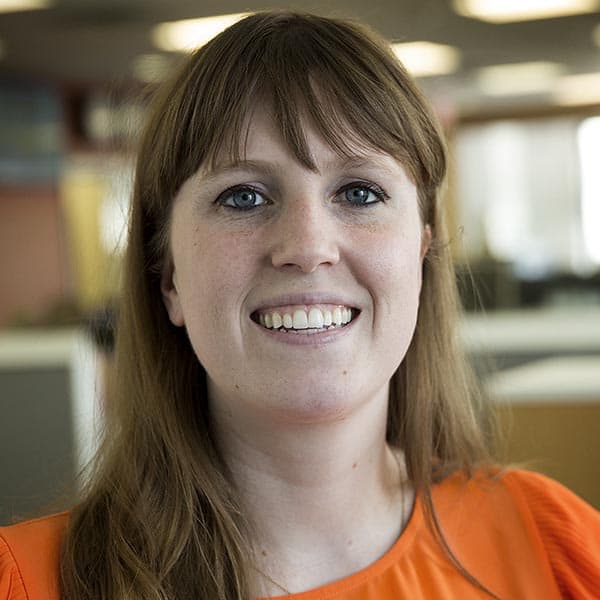Advertisement
With Over 100,000 Americans Dead From COVID-19, Do We Need A National Reckoning?
Resume
We've lost more than 100,000 people to the coronavirus in the United States. Yet, we've started reopening and talking about a "new normal." But what about reckoning?
The Boston Globe's editorial board on Monday called for a National Day Of Mourning and Remembrance. Bina Venkataraman, the editorial page editor, said such an effort is needed to help the country heal and preserve the memory of those who have died.
"If we try to repress [this memory] and just move on and pretend like this is over, I think we're robbing ourselves and future generations of the ability to learn from what happened here," Venkataraman told Radio Boston.
Historian and professor Drew Gilpin Faust, president emerita of Harvard University, said remembrances have helped us find meaning amidst devastation.
"One of the aspects of mourning and of remembrance ... would be to ask ourselves, what is the meaning of all this?" Faust said on Radio Boston.
Faust wrote about how Americans adapted after the massive loss of life in the Civil War. She also spoke with Radio Boston about the importance of marking great tragedies like this pandemic. The following excerpts have been lightly edited for clarity.
Interview Highlights
Faust on why it's important to mark the loss of life, individually and communally:
"When we lose loved ones, we have rituals that enable us to let go, that enable us to affirm that community, that persists in face of the loss of the individual ... One of the great tragedies of our current moment is that because of the contagiousness of this disease, people have been separated. They haven't been able to have their rituals of loss and rededication to a world that has been changed. So we need rituals.
"I think we as a nation need to recognize that this is a significant removal from our community as a nation and that needs to be marked as well."
Faust on drawing parallels between this loss to how we've marked past tragedies:
"The New York Times cover [this weekend] had a thousand dead out of [nearly] 100,000. One in 10. But, it does give some sense of scale, you see all those people juxtaposed with a little bit about them... I thought that was so moving.
"But, it reminds us also of the force that the Vietnam Memorial had, the Maya Lin memorial when it was erected. There was great controversy over it: Was it going to be too simple? Was it going to be not honorific enough? Yet the very fact of seeing those people named, made individual, made an entity once again was such an important part of our coming to terms with the losses from the [Vietnam War.]"
Faust on how you find meaning in the deaths of so many Americans:
"I've thought a lot recently about Abraham Lincoln at Gettysburg. How he, in very few words, fewer than 300 words, was able to define a meaning for the war and to say: It's not enough to have fought for our country, we also have to have a new birth of freedom. We have to make sure these lives were not lost in vain.
"Is there something [now] that we have to say to one another as a community? We've learned new lessons about our interdependence. We've learned new lessons about our vulnerability. We've learned new lessons about our inequities. And do we go forward with a different understanding of our commitment and obligation to one another?"
Current data from the Centers for Disease Control and Prevention suggests racial and ethnic minority groups have experienced a disproportionate amount of death to COVID-19. Faust on how that inequality may impact how we memorialize:
"Part of memorializing is coming to certain kinds of shared understandings. I would hope that, if we were to have a National Day of Mourning, we would invite many communities to help us define what that should be. Now, I made reference to some of the controversies that surrounded the Maya Lin design and the creation of the Vietnam Memorial. But, [the] process of coming to that memorial was, in a way, a part of the stock-taking and the remembrance and the mourning.
"I would hope that we could, as a nation, ask ourselves, how do we want to remember these people who have so tragically lost their lives? How do we want to affirm who we are, having seen this kind of loss and suffering? And what can we learn from talking with one another about that?"
During the 1918 pandemic, which coincided with World War I, there was no National Day of Mourning and almost no memorials to the victims. Faust on why she thinks we shouldn't repeat history with this pandemic:
"The 1918 pandemic flu pandemic is an odd occurrence, in that it happens at the end of a devastating world conflict. I think it gets muddled with the losses that came from that... [Also] people go to war with a purpose in mind. [This pandemic] happened to us... But, in my mind, that makes it all the more necessary to see some kind of meaning, because it's about the fundamental nature of the human condition: Our vulnerability, our mortality, and the fact that we're not in control of our destinies.
"Those are earth-shattering concepts that we need to, as a community, wrestle with and say: What matters to us in face of those vulnerabilities, and how do we define a newly enforced recognition of them?"
This segment aired on May 27, 2020.

